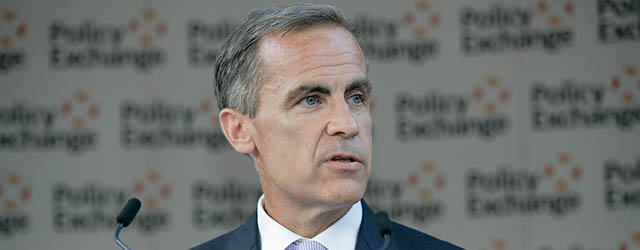
Two London-based expatriate executives for a multinational apparel maker were talking about the future post-Brexit, and life at potential new European Union (EU) headquarters.Dublin. Frankfurt. Berlin.
“Wait, what?” asked one. “Berlin’s on the table?”
“Sure,” the friend replied. “Everybody’s on his own now.”
In the weeks after the Brexit vote, those with personal or professional interests in the UK exhibited something like the Kübler-Ross stages of grief: denial, rage, bargaining, depression, acceptance. Substitute confusion for rage, and that sums up the range of reactions. The impact will be felt across the spectrum by individuals, companies and governments; it will show up in regulations, relocations and capital flows. It has been weeks since the vote, and still the only sure thing is that nothing is sure.
“The UK has entered a period of uncertainty and significant economic adjustment,” Bank of England governor Mark Carney said in presenting the BoE’s financial stability report in early July. “The efforts of the Bank of England will not be able fully and immediately to offset the market and economic volatility that can be expected while this adjustment proceeds.” As several real estate funds—Standard Life, Aviva Investors and M&G Investments—closed redemptions, he cautioned investors to “be prudent.”
In London, ex-pats traded speculation and started applying for UK citizenship. At a major consultancy, non-UK nationals gathered for a “Brexit lunch” to regroup and share information. Many permanent residents wonder if they will have to reapply for their visas. Some companies sought to allay the worst fears, or at least provide clarity, but could offer little certainty. HSBC sent reassurance about immigration status. At other companies, some staff were warned their status was in jeopardy.
The personal debates mirror those in corporate suites. An investment banker explains that his firm has always had in place a committee to explore other locations. “Officially, no one will ever admit it, but we always look at the options, even in terms of cost of labor,” he says. “Most large banks have been working on a plan B for years now. Whether these B plans will be implemented is another issue.”
Most large banks have been working on a plan B for years now. Whether these B plans will be implemented is another issue.”
One large US bank counseled staff via email to be ready for anything, but for the moment it will wait and see what happens. “There are hopes that the City of London will find some compromise,” the banker says. “Or that the UK will backtrack on the decision.”
London is doing its best to stem the possible tide of departures. The Bank of England immediately relaxed capital requirements, giving banks an extra €150 billion ($166 billion) in leeway to lend. But Jeremy Cook, chief economist at currency trader World First, suggests the move may not pan out, noting that under the prior governor, the Bank of England “had a horrid time trying to get UK banks to issue credit for one key reason: The demand for loans simply wasn’t there.” Chancellor of the exchequer George Osborne has proposed cutting the corporate tax rate to below 15%, but without a clear timetable. Tax considerations weigh heavily, too, with many firms already seeking a workaround to how value-added tax would be applied in a post-EU Britain. Several multinationals have already threatened job cuts: Airbus—15,000 people making wings for an Airbus superjumbo; and Tata Steel—11,000 employees in the UK, to name two.
Banking operations, which had “passport” standing throughout the EU, lie at the center of London’s struggle. Just prior to the vote, France’s central bank governor said, “If tomorrow Britain is not part of a single market, the City of London cannot keep this European passport, and clearing houses cannot be located in London either.” Globalism was already chipping away at UK dominance in the sector: Morgan Stanley, Credit Suisse, Citigroup and BNP Paribas, for example, have amped up operations in European cities such as Warsaw, Budapest and Belfast. So far, most such “nearshoring” has involved back-office operations, but the moves lay groundwork for more-sophisticated banking operations.
While London struggles to hold the line, other countries’ governments salivate over new business prospects. Martin Shanahan, chief executive of IDA Ireland, a state agency for drawing foreign direct investment, says the agency is planning to woo UK-based firms. “While not what we had hoped for, the situation may present opportunity for Ireland,” he says. Italian prime minister Matteo Renzi has created a task force to lure two EU watchdogs—the European Medicines Agency (EMA) and the European Banking Authority (EBA)—to Italy.
Despite the Sturm und Drang, could it all be a passing thunderstorm? Markets tumbled on the vote, but recovered much lost ground within days. After all, customers still need goods and services. The chief executive of Dixons Carphone, Sebastian James, tweeted “Feels strange and unsettling following the vote but we are the same, our company is the same, and our job is the same: making people happy.”



